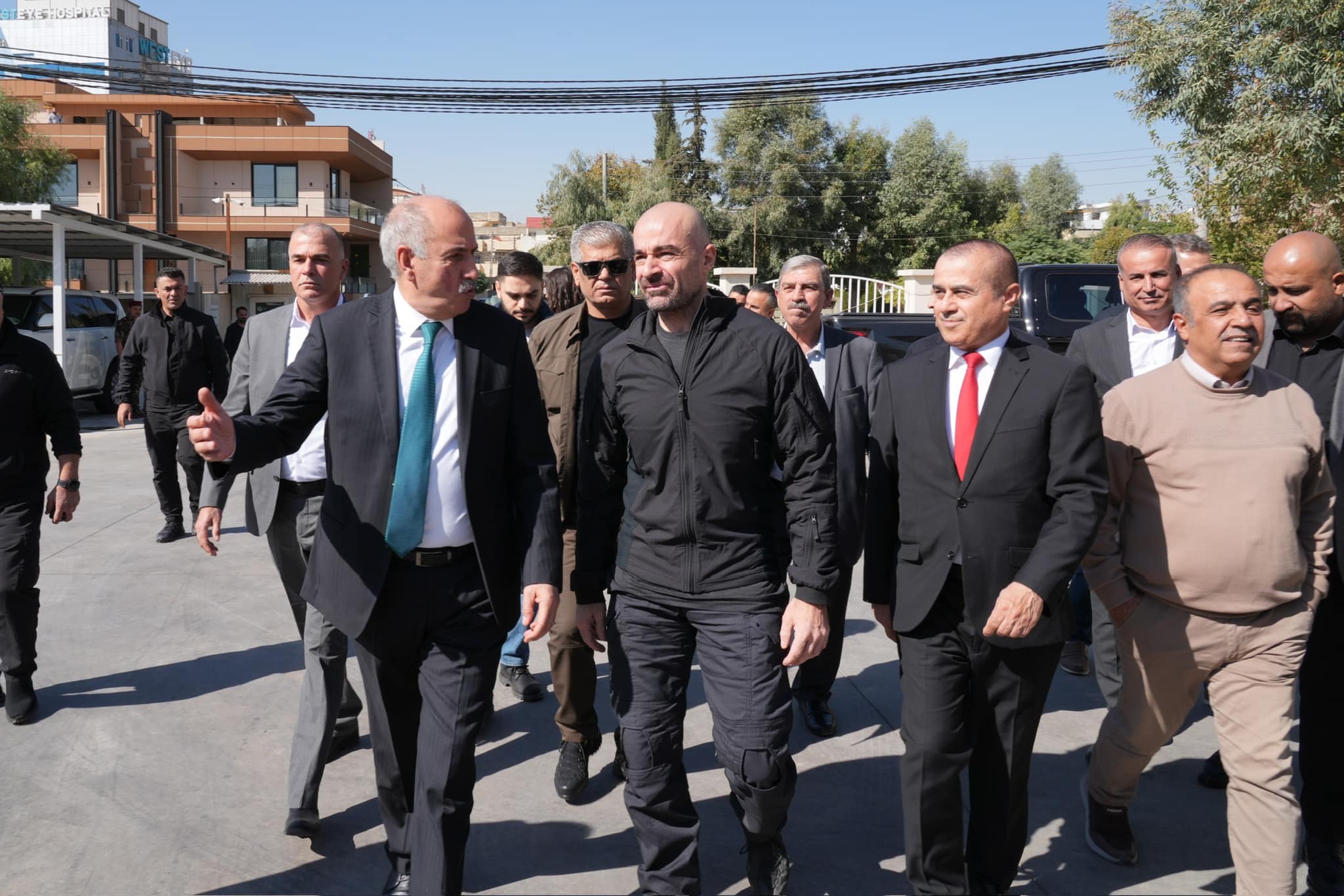During a recent visit to the Patriotic Union of Kurdistan’s (PUK) Media and Awareness Bureau, PUK President Bafel Jalal Talabani reiterated the importance of a professional and responsible media approach. His remarks followed criticisms against the Kurdistan Regional Government’s (KRG) Media and Information Department, accused of partiality and targeting media outlets in Sulaymaniyah while ignoring misleading information from regions under Kurdistan Democratic Party (KDP) influence. Talabani underscored the PUK’s dedication to a fair media landscape and political strategy.
Bafel Talabani’s Call for Media Responsibility
Bafel Jalal Talabani, President of the PUK, visited the party’s Media and Awareness Bureau, where he was welcomed by Imad Ahmed, the head of the bureau; Latif Nerwayi, head of the Media Board; Najmadin Faqe Abdullah, head of the Awareness Board; bureau members; and several journalists. During his visit, Talabani commended the bureau’s efforts, emphasizing the role of the PUK’s media in restoring the balance of power and maintaining journalistic professionalism.
Imad Ahmed presented a report highlighting the PUK’s media policy, which aligns with the evolving political landscape and prioritizes the interests of the Kurdish people. He expressed gratitude for Talabani’s support in advancing the PUK’s media agenda. In his address, Talabani acknowledged the contributions of PUK journalists, urging them to continue working diligently to achieve the party’s objectives. “From this day forward, your mission will begin to accomplish our goals,” he stated.
Talabani further outlined the PUK’s vision for navigating the current political situation in the Kurdistan Region, Iraq, and the wider region, especially in the post-election period. He affirmed the party’s commitment to implementing its program with a national and patriotic approach to serve the Kurdish people faithfully.
Media Policy Roadmap and Calls for Integrity
In discussing the PUK’s media responsibilities, Talabani introduced a media policy roadmap, advocating for a commitment to integrity, accuracy, and professionalism. He underscored the need for PUK’s media outlets to focus on delivering responsible journalism while steering clear of biased agendas that could distort facts. “The PUK’s media must convey its messages with responsibility and seriousness, avoiding media chaos,” he said, stressing that the party’s media would work towards building a promising future for the people.
He emphasized that the PUK would not engage in media practices that aim to manipulate public opinion, promising to collaborate with media personnel to realize the goals and aspirations of the Kurdish people. The roadmap seeks to ensure that all PUK-affiliated media operate with transparency, contributing positively to the public discourse.
Accusations Against KRG’s Media and Information Department
The visit coincided with criticism directed at the KRG’s Media and Information Department, which has been accused of partiality in its handling of misinformation. PUK Media claimed that, the department, controlled by a faction of the KDP, had recently identified ten media outlets and online platforms as sources of misinformation, all based in Sulaymaniyah. The listed outlets included NRT, Wazhu, SNN, Payam, Ali Hama Salih, Speda, KNN, Kobas, Bwar, and Sharpress. Notably, no media channels based in Erbil, Duhok, or other KDP-controlled areas were named, despite the widespread dissemination of inaccurate information from some outlets in those regions.
Based on PUK Media, editors from the accused media platforms have voiced their objections to the department’s claims. Rawezh Karmeran, editor-in-chief of Kobas, criticized the department for lacking impartiality, arguing that it is influenced by political interests rather than functioning as an independent government body. “The Media and Information Department, funded by the government, should provide impartial information. However, it has become a tool serving specific individuals and factions,” Karmeran stated.
Similarly, Kamal Rauf, editor-in-chief of Sharpress, accused the department of attempting to curtail press freedom. He argued that the department’s actions were politically motivated and served the agenda of a specific party under the pretext of information regulation. Rauf further noted, “This approach has been ineffective in the past and will continue to be so. We will not allow the objectives of one party to be executed under the guise of law.”
PUK’s Response to Media Control Allegations
Talabani reaffirmed the PUK’s commitment to media freedom and the protection of journalistic rights. He stated that the PUK would resist any attempts to use governmental institutions for political control or to limit freedom of expression. Talabani’s message emphasized the PUK’s resolve to uphold a balanced media environment where diverse perspectives can be expressed without fear of censorship or political interference.
The controversy surrounding the Media and Information Department has highlighted the ongoing challenges in the Kurdistan Region’s media landscape, where accusations of bias and political manipulation are common. As one of the five official departments within the KRG, the Media and Information Department is tasked with shaping media strategy and communication policy. However, its recent actions have drawn criticism for resembling the operations of a party-affiliated organization rather than an impartial governmental body.
By calling for a responsible and independent media, Talabani seeks to promote a more open and democratic society in the Kurdistan Region, where the media can serve the public interest without undue influence from political factions.


